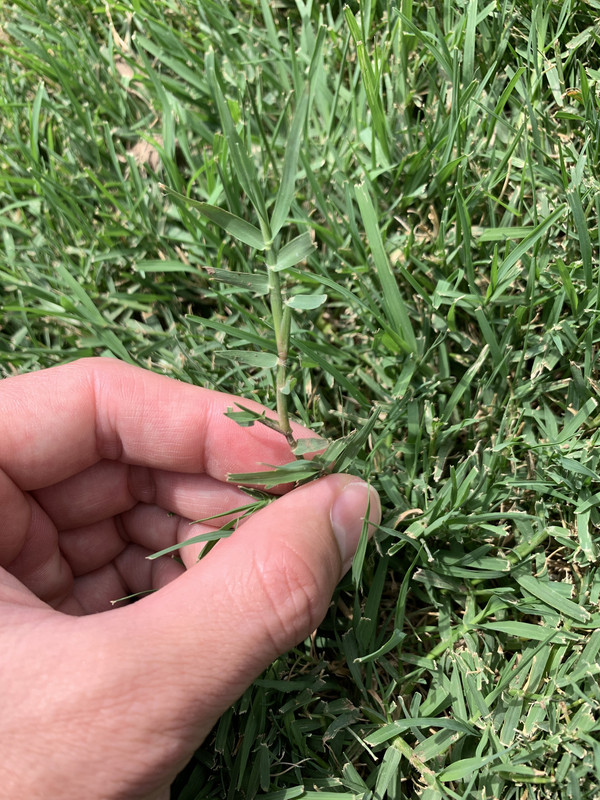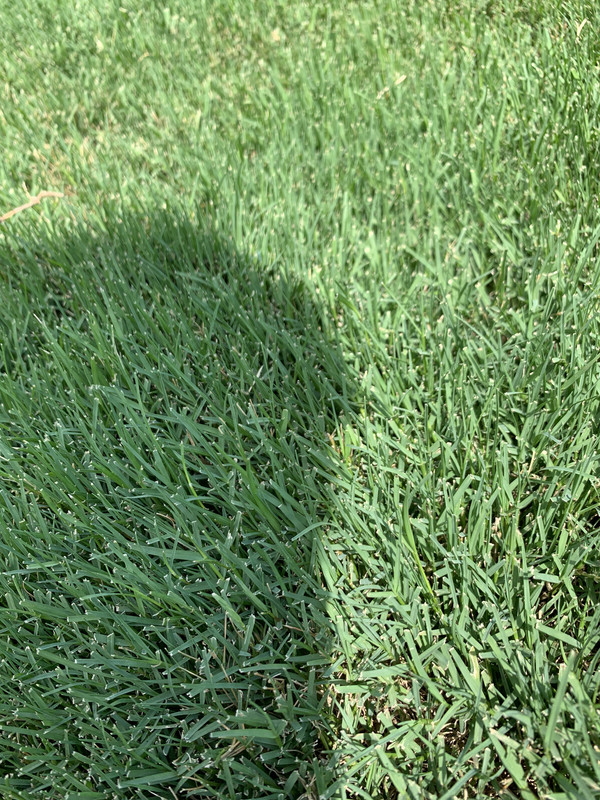As an Amazon Associate, I earn from qualifying purchases
Hybrid Bermuda Vs Common Bermuda Which Grass Is Best? Hybrid Bermuda is a high-quality, premium grass type with improved characteristics compared to Common Bermuda. Hybrid Bermuda is a popular choice for lawns and golf courses due to its enhanced durability, better resistance to diseases and weeds, and faster growth rate.
It creates a dense, lush turf that can withstand heavy foot traffic and recover quickly from damage. On the other hand, Common Bermuda is more economical, suitable for areas with less demanding requirements, and is still an excellent choice for lawns, sports fields, and recreational areas.
Both types have their pros and cons, but understanding their differences will help you make the right choice for your specific needs. We will delve into the characteristics, advantages, and maintenance considerations of both Hybrid Bermuda and Common Bermuda grass to help you make an informed decision.
Hybrid Bermudagrass
Hybrid Bermuda grass offers superior performance compared to common Bermuda grass, providing better durability, drought resistance, and disease tolerance. Experience the benefits of hybrid Bermuda grass for a lush and beautiful lawn.
Hybrid Bermudagrass If you’re considering planting Bermuda grass in your lawn or athletic field, you’ve likely come across the term “hybrid Bermudagrass.” But what exactly does it mean, and is it the right choice for you? In this section, we’ll explore the characteristics and advantages of hybrid Bermudagrass, helping you make an informed decision.
What Variety Of Bermudagrass Is Right For You?
When choosing between Hybrid Bermuda and Common Bermuda, consider some factors.
When choosing the right variety of Bermudagrass for your lawn or sports field, there are a few factors to consider. Hybrid Bermudagrass, as the name suggests, is a crossbreed of two or more Bermudagrass varieties. It is specifically bred for superior traits, making it an excellent choice for those seeking a highly resilient and visually appealing grass.
Texture And Color
Comparing Hybrid Bermuda vs. Common Bermuda Texture And Color reveals distinct differences in appearance and texture, aiding lawn selection.
One of the key reasons why hybrid Bermudagrass is a popular choice is its desirable texture and color. It typically has a fine texture, giving your lawn a lush and manicured appearance. Its blades are also known for their vibrant green color, enhancing the overall aesthetic value of your outdoor space. But it’s not just about the looks. Hybrid Bermudagrass also performs well under various weather conditions, including extreme heat and drought. Its deep roots enable it to access water and nutrients from the soil efficiently, allowing it to maintain its green color even during periods of limited rainfall. When maintained, hybrid Bermudagrass has a rapid growth rate, allowing it to quickly recover from heavy traffic or any damage caused by activities and sports.
Growth Habits
Understanding the growth habits of Hybrid Bermuda vs. common Bermuda grasses is essential for informed lawn decisions. Explore their differences for optimal lawn care.
Improved Common Bermudagrass Rooting Depth
Improved Common Bermudagrass has a deeper root system benefiting from increased resilience and drought tolerance.
Rooting Depth
Hybrid Bermuda has an impressive rooting depth, making it great for establishing a strong, healthy turf.
Maintenance Requirements
Maintenance requirements are a crucial factor to consider when choosing between Hybrid Bermuda and Common Bermuda grasses. There are distinct needs for watering, mowing, and overall care for both types of grass.
Watering Needs
- Drought-tolerant and requires approximately 1 inch of water per week.
- Deep and infrequent watering is advisable to encourage root growth.
- Less tolerant to drought and may need up to 1.5 inches of water per week.
- Regular, shallow watering is recommended due to its shallow root system.
Mowing Frequency
- Mowing should be done every 5-7 days during peak growth periods.
- An optimal mowing height of 0.5-1.5 inches is ideal for a well-maintained lawn.
- Requires more frequent mowing, typically every 3-5 days, to maintain an ideal height.
- Keep it between 1-2 inches high for a neat appearance.

Climate And Soil Adaptability
Choosing the right Bermuda grass for your lawn or sports field depends on the climate and soil conditions. Hybrid Bermuda and Common Bermuda are two popular options with different adaptabilities that can impact their success in environments.
Heat And Drought Tolerance
Hybrid Bermuda grass varieties are renowned for their exceptional tolerance to heat and drought. These strains have been specifically developed to thrive in hot, arid conditions, making them an excellent choice for regions with scorching summers and limited rainfall. Compared to Common Bermuda varieties, they may struggle in hot, dry conditions.
Soil Type Preferences
Various soil types, including sandy and clay-based soils, are suitable for hybrid Bermuda grasses. Adaptable to different pH levels, they can thrive anywhere. Common Bermuda, however, could struggle in soils with poor drainage or high acidity.
Disease And Pest Resistance
Hybrid Bermuda grass offers superior disease and pest resistance compared to Common Bermuda grass, making it a more resilient choice for maintaining a healthy and vibrant lawn.
Common Bermuda and Hybrid Bermuda grasses differ in their susceptibility to diseases and pests, which can impact overall health and appearance. The common diseases and pests associated with each type of grass can help you decide which variety to plan
Common Diseases
- Bermuda Grass Decline: causes yellowing and thinning of the grass
- Dollar Spot: small, circular tan spots on the grass blades
- Spring Dead Spot: large, irregular patches of dead grass in the spring
| Disease | Symptoms |
|---|---|
| Bermuda Grass Decline | Yellowing and thinning of grass |
| Dollar Spot | Circular tan spots on grass blades |
| Spring Dead Spot | Irregular patches of dead grass in spring |
Pests To Look Out For
- Armyworms: feed on grass blades, causing brown patches
- Grubs: feed on grass roots, leading to wilting and browning
- Sod webworms: create visible silk webs on the grass surface
Remember, choosing the right type of Bermuda grass is resistant to common diseases and pests can help you maintain a healthy and vibrant lawn all year round.

Durability And Wear Tolerance
Hybrid Bermuda grass offers superior durability and wear tolerance compared to common Bermuda. It thrives in high-traffic areas, making it an ideal choice for lawns, sports fields, and golf courses. With its resilience and ability to withstand heavy foot traffic, hybrid Bermuda grass ensures long-lasting, lush green spaces.
Durability and Wear Tolerance When choosing a Bermuda grass for your lawn, it’s important to consider factors like durability and wear tolerance. After all, you want a turf that can withstand heavy foot traffic and recover quickly from damage. In this section, we’ll compare Hybrid Bermuda and Common Bermuda in terms of their traffic tolerance and recovery ability.
Traffic Tolerance
Hybrid Bermuda boasts exceptional traffic tolerance, making it a popular choice for high-traffic areas such as sports fields and playgrounds. Its dense growth and strong root system help it handle constant use without significant wear and tear. Common Bermuda, on the other hand, is less tolerant of heavy foot traffic. While it can handle moderate activity, it may struggle to bounce back from extensive wear.
Recovery Ability
When it comes to recovery ability, Hybrid Bermuda has the upper hand. Regardless of foot traffic, pets, or adverse weather conditions, this variety recovers quickly from damage. Its vigorous growth and spreading nature allow it to fill bare spots and repair itself. Common Bermuda, while capable of recovering, may take longer to do so, especially if faced with significant damage. In conclusion, if you’re looking for a Bermuda grass with superior durability and wear tolerance, Hybrid Bermuda is your best bet. Its excellent traffic tolerance and rapid recovery ability set it apart from Common Bermuda. Consider this resilient grass variety for a lawn that can handle whatever comes its way.
Aesthetic Appeal
When choosing between Hybrid Bermuda grass and Common Bermuda grass, aesthetic appeal is crucial. Understanding the differences in their aesthetic qualities can help you make an informed decision that aligns with your preferences and landscaping goals.
Overall Look
Hybrid Bermuda grass is celebrated for its fine texture and lush, dense growth pattern. Its vibrant green color and uniform appearance contribute to a visually appealing landscape. On the other hand, Common Bermuda grass tends to have a coarser texture, which may give the lawn a more rugged and natural look. The aesthetic difference in the overall look between these two varieties is evident from a distance and can influence the visual impression of your outdoor space.
Seasonal Appearance
Hybrid Bermuda grass maintains its vibrant green color throughout the growing season, exhibiting a consistently lush appearance. In contrast, Common Bermuda grass may experience a shift in color during certain seasons, transitioning to a straw-like hue in response to environmental factors. This seasonal variation in appearance can impact the overall aesthetic of the lawn, with Hybrid Bermuda offering a more uniform and visually pleasing look year-round.
Cost Considerations
When considering the cost of Hybrid Bermuda versus Common Bermuda, it’s important to factor in the initial investment along with long-term maintenance expenses. Hybrid Bermuda usually requires less frequent watering and fertilization, potentially saving overall costs compared to Common Bermuda in the long run.
Cost considerations are vital when choosing between Hybrid Bermuda and Common Bermuda grass. Let’s take a closer look at each type’s financial aspects.
Initial Investment
Hybrid Bermuda grass demands a higher initial investment due to its superior quality and establishment process. Common Bermuda grass, on the other hand, is more budget-friendly initially.
Long-term Maintenance Costs
When long-term maintenance costs, Hybrid Bermuda grass shines with lower maintenance requirements, translating into cost savings over time. Common Bermuda grass may require more frequent upkeep, leading to slightly higher long-term maintenance costs.
Choosing The Right Bermuda Grass For You
When choosing the right Bermuda grass for your lawn, it’s important to understand the differences between Hybrid Bermuda and Common Bermuda. Each type has its unique characteristics.
Factors To Consider
Before deciding on the type of Bermuda grass to use, consider the following factors:
- Sunlight: The amount of sunlight your lawn gets can affect its growth and maintenance needs.
- Climate: Consider your local climate and weather patterns to ensure you choose a variety that can thrive in your area.
- Watering Needs: Different types of Bermuda grass may have varying water level requirements. Choose the one that aligns with your watering habits.
- Maintenance: Assess the amount of time and effort you are willing to invest in maintaining your lawn, as different varieties may require different levels of care.
- Soil Conditions: Understand the soil type in your area and select the Bermuda grass is best suited for the soil composition.
Consultation With Landscaping Experts
You can get valuable insights and recommendations from landscaping experts tailored to your lawn and environment. They can assess your yard and offer professional guidance on the most suitable type of Bermuda grass.

Conclusion
Choose wisely for lasting satisfaction.
As an Amazon Associate, I earn from qualifying purchases

